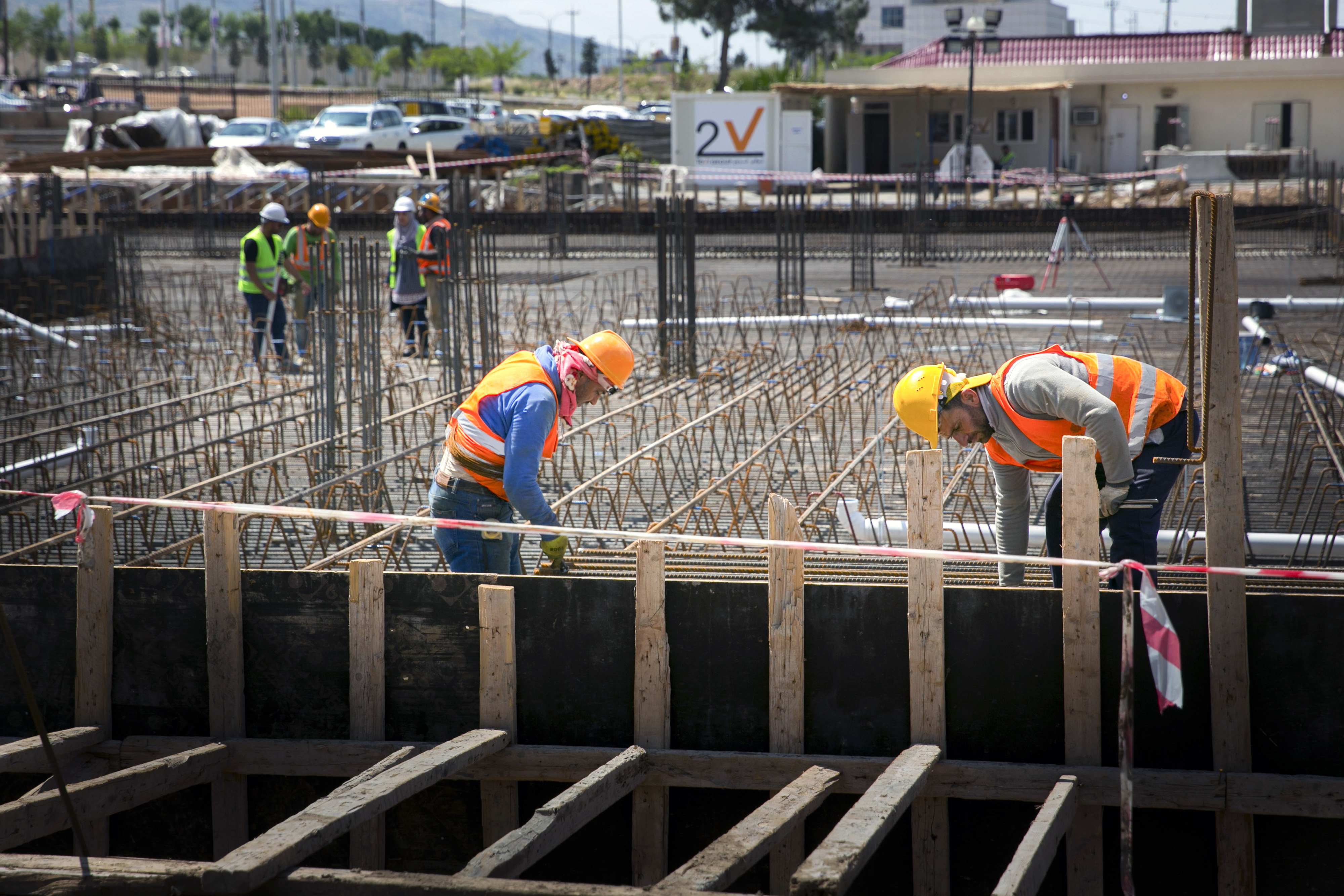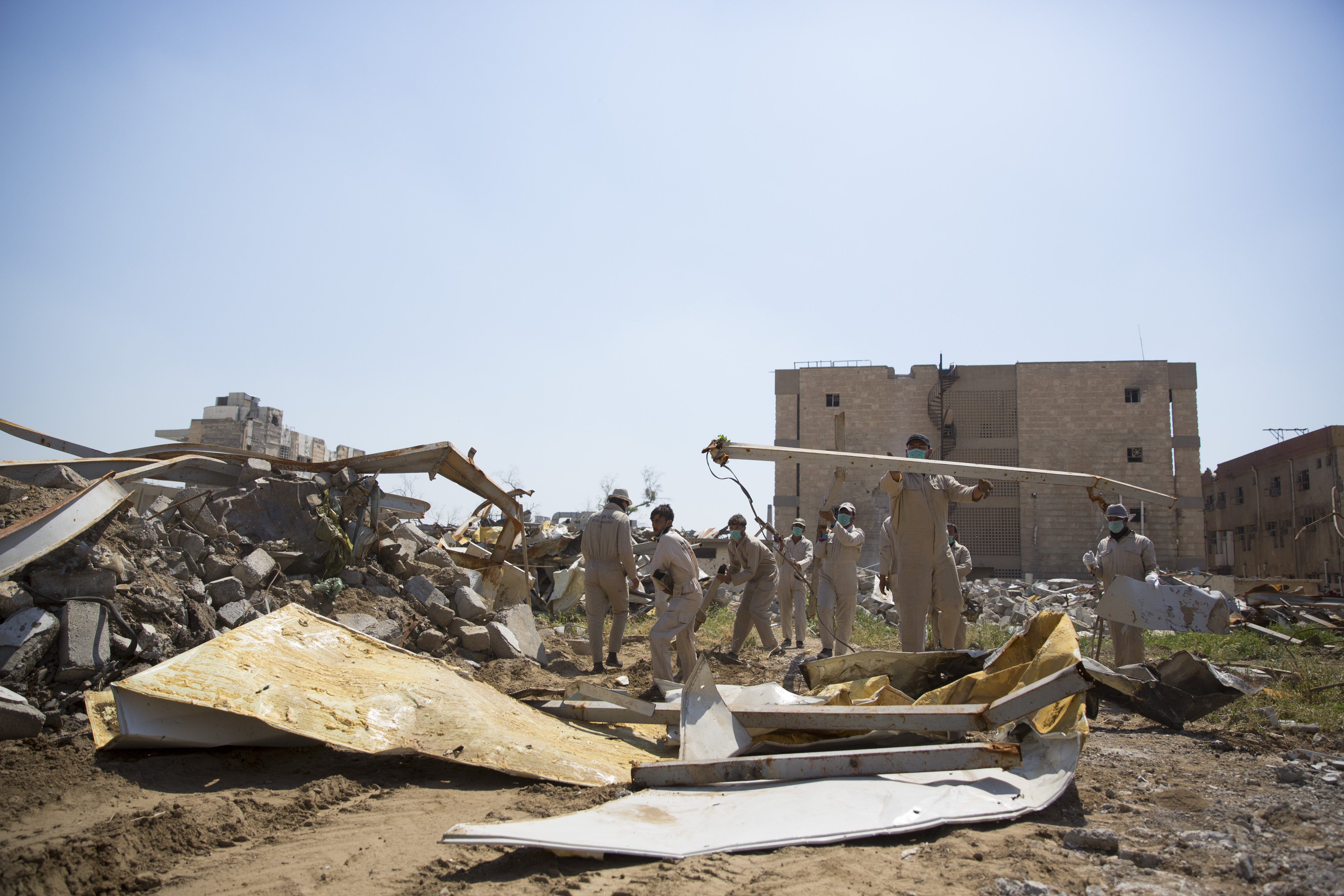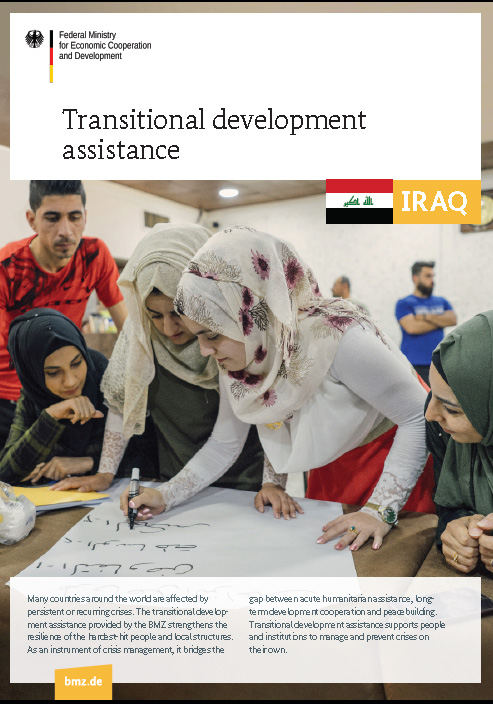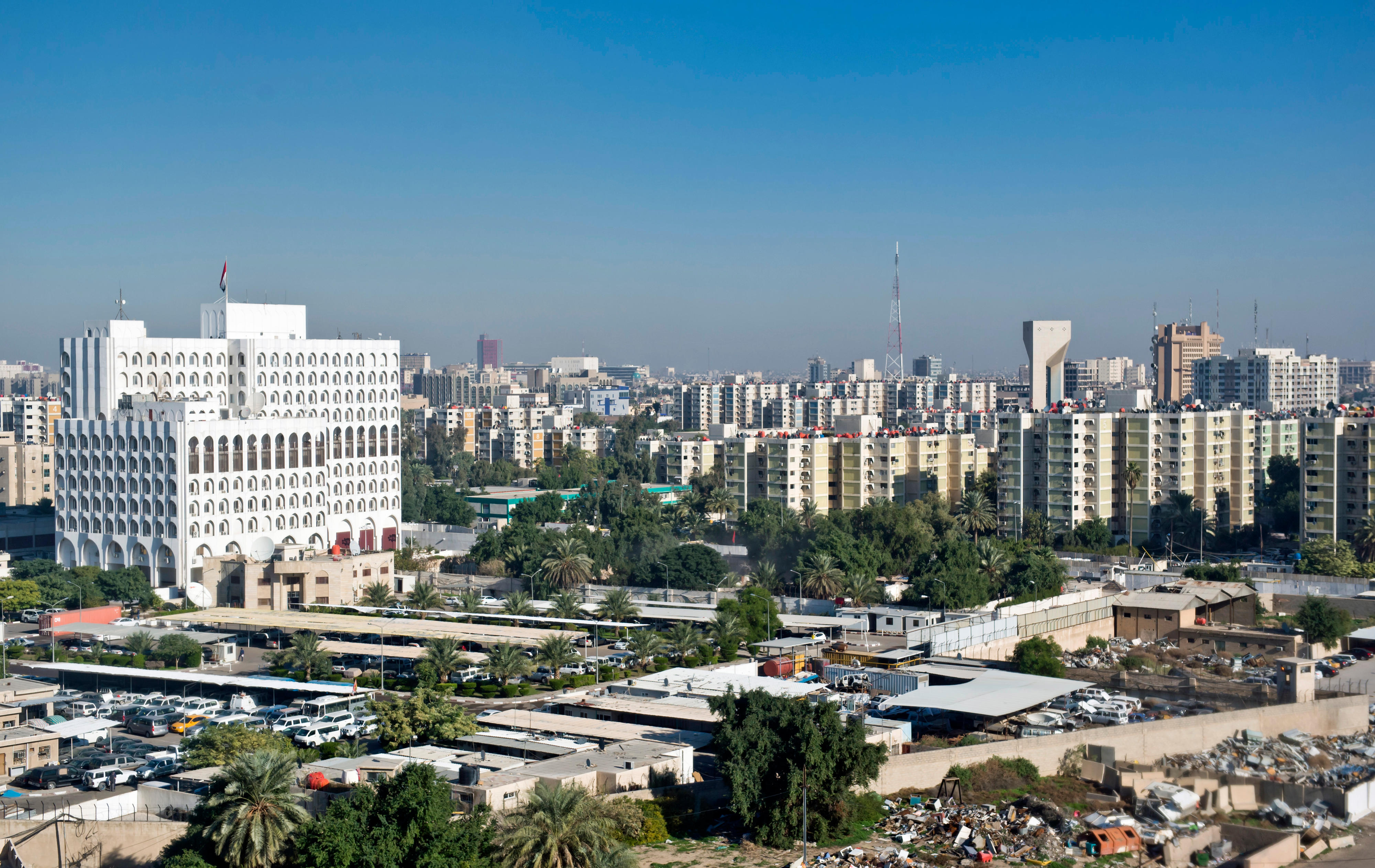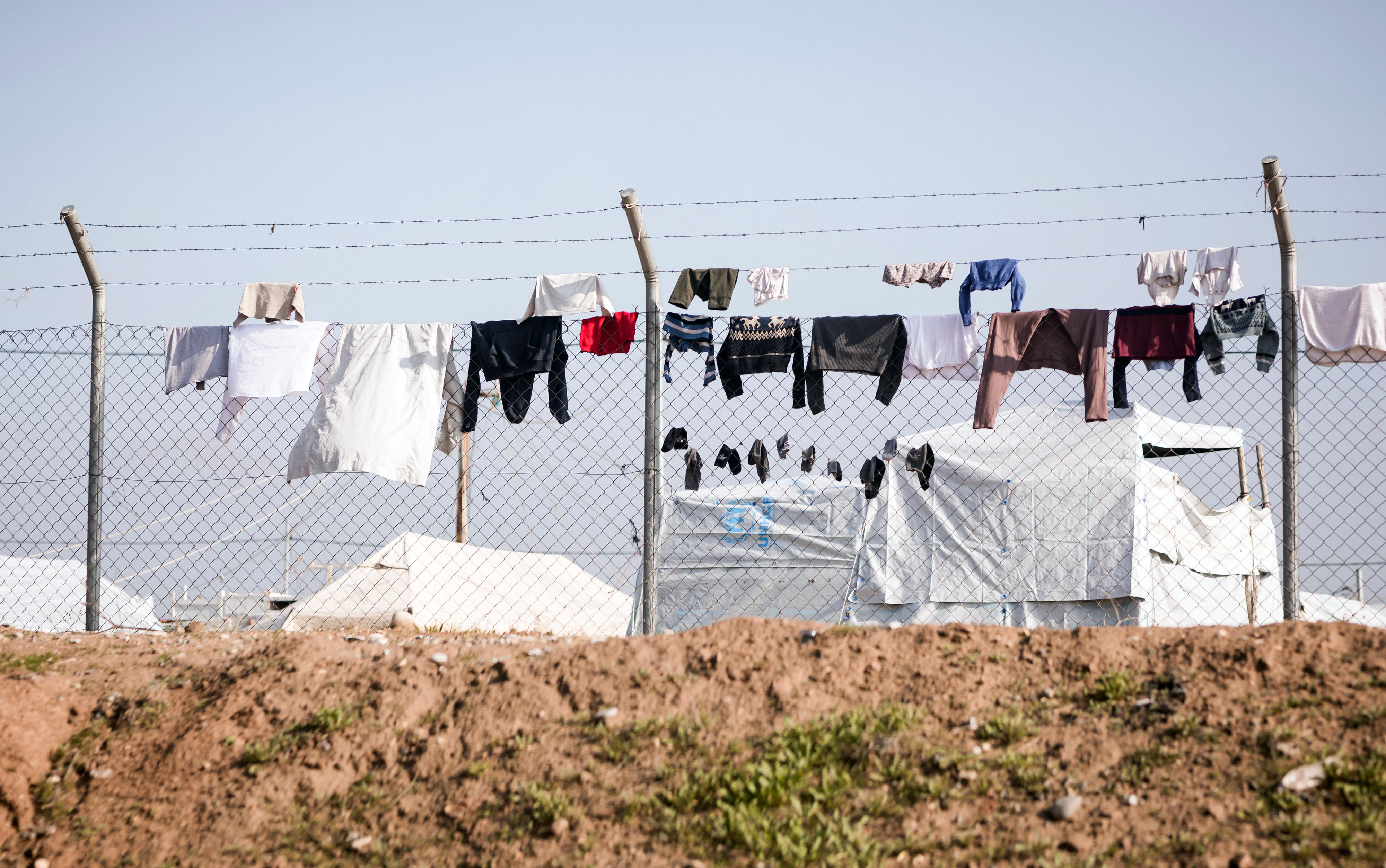Workers at the construction site of Azadi Hospital in Dohuk, April 2018
Copyright© Ute Grabowsky / photothek.net
Iraq
Following a time marked by violence, Iraq now has a comparatively stable security situation. The main challenges to be dealt with include the country’s heavy economic dependence on oil exports, a huge public sector and weak private sector, high population growth and the tangible effects of climate change.
The situation continues to be marked by social tensions and ethno-religious conflicts, corruption, significant deficits in meeting the basic needs of the population and the unresolved conflicts over resources and territorial disputes between the central government and the Kurdistan Region of Iraq.
Even if the group calling itself “Islamic State” (IS) is regarded as having been defeated territorially since it has not had any parts of the country under control since 2017, active cells still exist.
More than six million people were displaced by the advances of the IS that started in 2014. Most have returned to their home towns, not least thanks to extensive international support. Yet, there are still more than one million internally displaced persons and more than 330,000 refugees from other countries, including almost 300,000 from Syria, live in Iraq (as at January 2026).
German development cooperation with Iraq
The BMZ has been cooperating with Iraq since 2014. The country is one of the so-called nexus and peace partners of German development cooperation.
Initially, Germany’s engagement was aimed at supporting Syrian refugees, internally displaced Iraqis and host communities in northern and central Iraq. Development cooperation has made a significant contribution to the reconstruction efforts, enabling millions of displaced persons to return home and advancing stability in the country.
Against this backdrop the crisis response measures will now be phased out gradually while increased support is being given to longer-term reform processes, especially in the area of economic development and climate action.
Currently, cooperation with Iraq is focused on the following core areas:
- Peaceful and inclusive societies
- Sustainable economic development, training and employment
- Climate and energy, just transition
Germany is one of Iraq’s biggest bilateral donors, the others being the USA and Japan. The German government has provided over 3 billion euros to the partner country since 2014. Of this sum, roughly two billion euros has come from the BMZ’s budget.
At the government negotiations in July 2024, the BMZ made a new commitment to Iraq of around 117.7 million euros, of which just under 73.3 million euros was for transitional development assistance (External link) and for projects under the Special Initiative “Displaced Persons and Host Countries” (External link).
SDG trends for Iraq
- On track or maintaining SDG achievement
- Moderately improving
- Stagnating
- Decreasing
- Trend information unavailable
